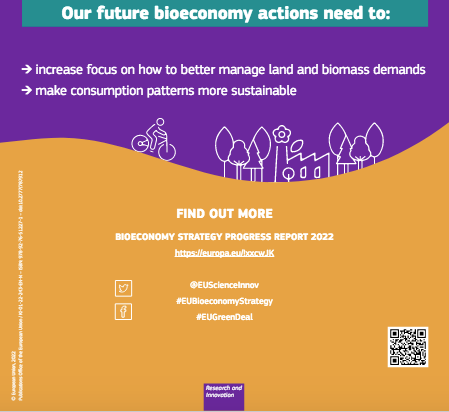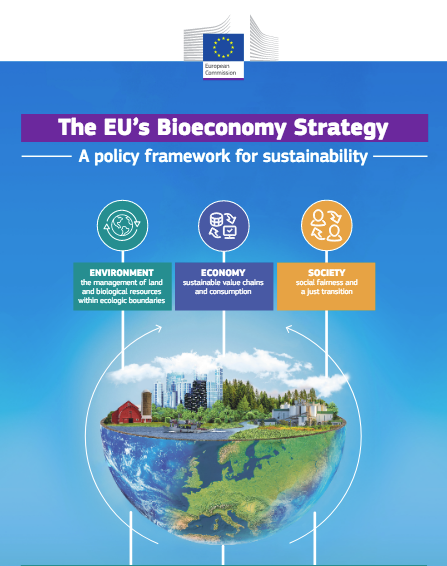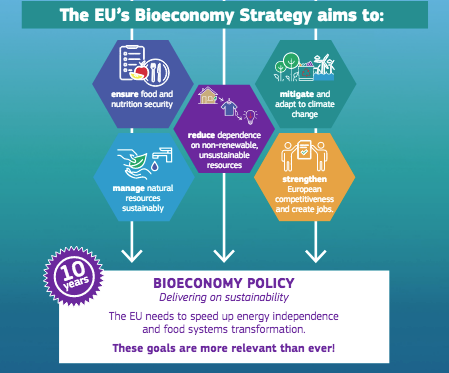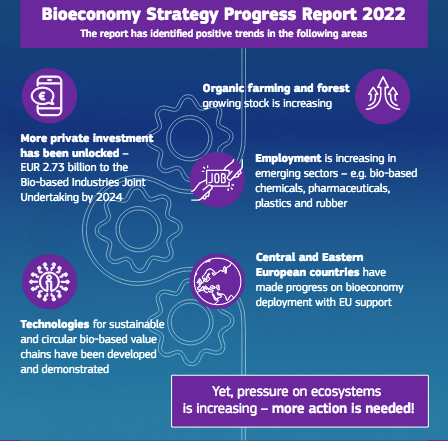Requested by the Council of the European Union in 2019, this report assesses the progress made in the implementation of the EU Bioeconomy Strategy from 2018 and its action plan, and identifies gaps for possible future EU bioeconomy action and initiatives.
The report reflects on the increased importance of the bioeconomy in the new political environment, framed by the European Green Deal. With our current fossil-based economy having reached its limits, the transition towards a new societal and economic model, based on the sustainable and circular use of biological resources, has become one of the Union’s core tasks. The bioeconomy, with its potential to improve policy coherence, and identify and resolve trade-offs, for example on land and biomass demands, enables countries and regions to design transition pathways according to their specific challenges and opportunities. Hence, the bioeconomy plays a crucial role in achieving the objectives of the European Green Deal, and help us to find solutions for the current food security and energy independence crisis caused by the Russian invasion of Ukraine.
The report further shows that the actions set out in the Bioeconomy Strategy of 2018 are on track in achieving the strategy’s main objectives:
- An increasing number of national and regional bioeconomy strategies promote cross-sectoral cooperation and sustainability principles, and invest in bioeconomy innovation.
- Progress on bioeconomy deployment has been achieved in Central and Eastern European countries, aided by significant EU funding contributions and the establishment of new fora and networks.
- Mobilisation of private investments, start-ups and research and innovation in food and other bio-based industries are increasing and show promising developments. Europe has a strong position in the global market for bio-based chemicals and materials.
Yet, the report also identified gaps in the implementation of the action plan that require further action. First, increased focus on how to better manage land and biomass demands to meet environment and economic requirements in a climate neutral Europe. Second, work on more sustainable consumption patterns to enhance environmental integrity.

Source
European Union, press release, 2022-06-09.
Supplier
Share
Renewable Carbon News – Daily Newsletter
Subscribe to our daily email newsletter – the world's leading newsletter on renewable materials and chemicals













